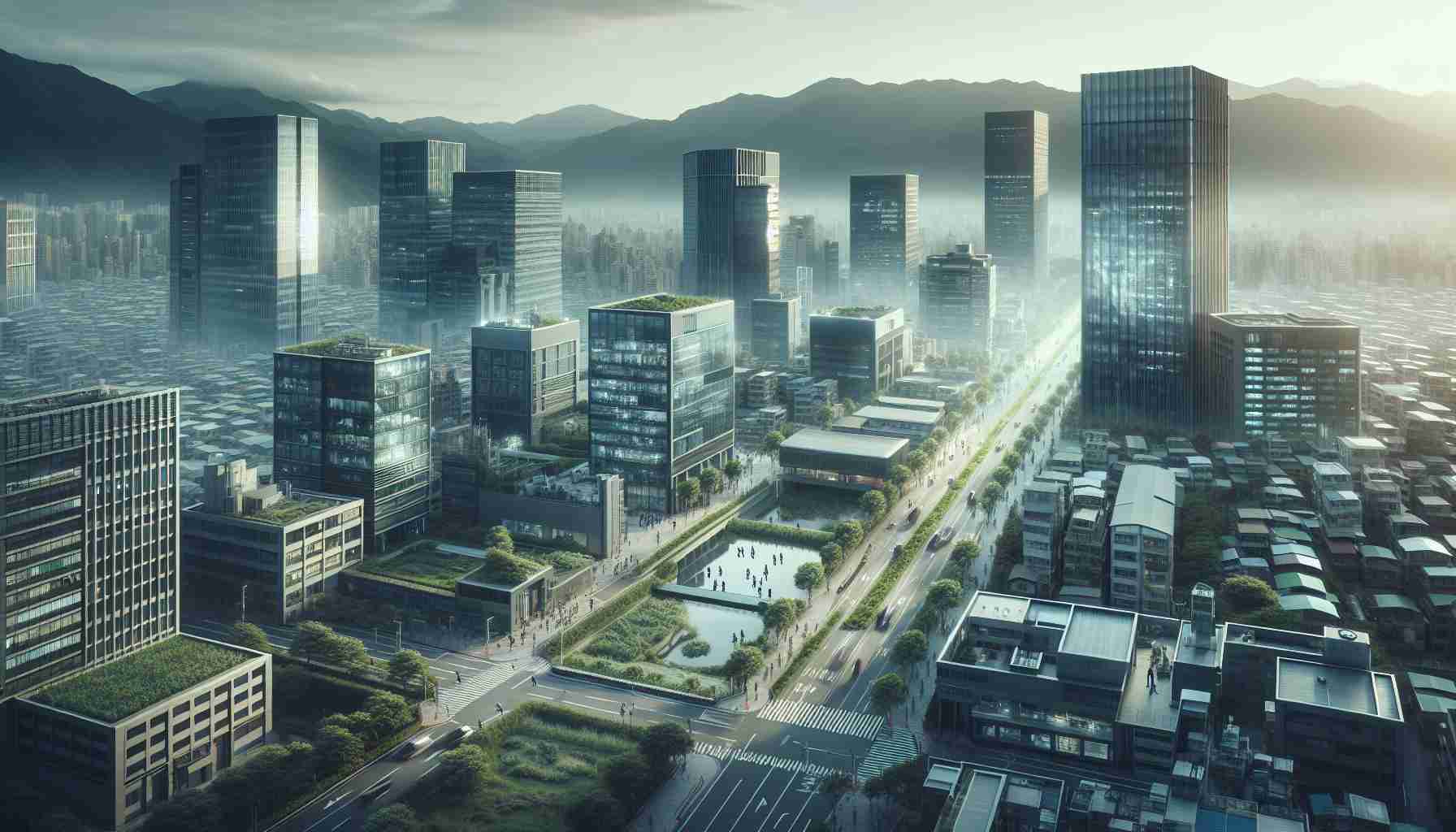Unseen Tensions in Hsinchu
In the heart of Taiwan lies Hsinchu, a city known for its serene rice fields and towering tech factories. Just a stone’s throw from the peaceful countryside, the bustling world of semiconductor manufacturing stands as a testament to the nation’s technological prowess.
Hsinchu is often dubbed the world’s Silicon Valley, producing the chips that power everything from smartphones to artificial intelligence systems. Leading the charge is the Taiwan Semiconductor Manufacturing Company (TSMC), commanding a staggering 64% of the global semiconductor market. This powerhouse significantly bolsters Taiwan’s economy, with chip production contributing a remarkable 25% to the nation’s GDP.
However, this industrial success is not without its downsides. The immense demand for water and energy from these factories leads to a growing discord with local farmers. In recent years, water shortages forced the government to halt irrigation for agricultural needs, prioritizing chip manufacturing instead. Concerns have also been raised about solar farms encroaching onto valuable farmland, adding to the existing tensions.
Despite the heavy reliance on semiconductor production, sustainability is becoming a pressing issue. As AI technologies surge, skyrocketing energy consumption signals a troubling trend. Experts warn that Taiwan’s green energy initiatives are lagging, with fossil fuels still dominating the energy supply. A more balanced approach between sustainable practices and technological advancement is crucial to safeguard Taiwan’s environmental future.
Balancing Progress and Sustainability: Hsinchu’s Semiconductor Landscape
Overview
Hsinchu, often referred to as the “Silicon Valley of Taiwan,” is at the forefront of the global semiconductor industry, thanks to its rich agricultural heritage and robust technological infrastructure. The city is home to the Taiwan Semiconductor Manufacturing Company (TSMC), which alone dominates 64% of the global market. This immense concentration on semiconductor production significantly contributes to Taiwan’s economy, underpinning approximately 25% of its GDP. However, this industrial excellence comes with significant challenges that raise questions about sustainability and resource management.
Key Features of Hsinchu’s Semiconductor Industry
1. Centralization of Semiconductor Manufacturing: TSMC is the global leader not only in production capacity but also in technological innovation, consistently pushing the boundaries of chip performance and efficiency.
2. Economic Impact: The semiconductor sector in Hsinchu facilitates job creation, attracts foreign investments, and positions Taiwan as a critical player in global supply chains for electronics, automotive, and AI sectors.
3. Investment in Research and Development: Hsinchu’s tech ecosystem is bolstered by substantial investments in R&D, leading to breakthroughs in chip technology, including smaller, faster, and more efficient semiconductor designs.
Emerging Trends and Innovations
– AI and Machine Learning: As demand for AI increases, so does the need for advanced semiconductors capable of supporting complex computations. Hsinchu is strategically enhancing its capabilities in AI chip production.
– Green Technology Initiatives: Information is beginning to surface about TSMC’s commitments to reduce carbon emissions, including plans for building new facilities that utilize renewable energy sources. The future will likely demand a shift towards more sustainable manufacturing practices.
Use Cases
– Consumer Electronics: Semiconductors from Hsinchu are integral to the production of smartphones, tablets, and personal computers.
– Automotive Industry: The growing demand for electric vehicles necessitates advanced semiconductors to manage energy efficiency and improve performance.
Limitations and Controversies
– Resource Scarcity: Local farmers are increasingly at odds with semiconductor manufacturers due to water shortages, exacerbated by the industry’s high demands. This tension represents a significant socio-economic concern, as agricultural activities are being curtailed in favor of industrial water use.
– Sustainability Challenges: Despite initiatives, experts express concern about Taiwan’s heavy reliance on fossil fuels amidst rising energy consumption in semiconductor manufacturing. This could impede the nation’s goals for carbon neutrality.
Security Aspects
– Geopolitical Tensions: Hsinchu’s strategic importance in the semiconductor supply chain has drawn the attention of global powers, leading to concerns over technological espionage and cyber threats focused on infrastructure.
Predictions
Looking ahead, Hsinchu’s semiconductor industry faces both opportunities and challenges. Market analysts predict that while the demand for chips will continue to soar, sustaining agricultural needs and transitioning to green energy sources will become increasingly critical in order to maintain a stable socio-economic environment.
Conclusion
As Hsinchu navigates the intersection of agriculture, technology, and sustainability, its future will depend on how effectively it can balance the urgent needs of its semiconductor industry with the environmental and societal impacts of that growth. This balancing act will be key to securing a sustainable path forward for both local communities and Taiwan’s technological ambitions. For more information on the semiconductor industry and related topics, visit Taiwan Semiconductor Manufacturing.
